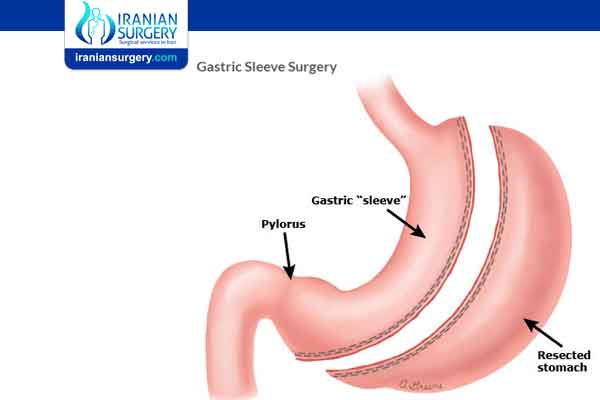How long does it take to recover from gastric sleeve?
How do you qualify for gastric sleeve surgery?
Is the gastric sleeve worth it?
How much weight will I lose with gastric sleeve?
What are the side effects of the gastric sleeve?
Diet after gastric sleeve surgery
How long does it take to recover from gastric sleeve?
Most gastric bypass surgery is laparoscopic, which means the surgeon makes small cuts. That makes for shorter recovery time.
Most people stay in the hospital for 2 to 3 days, and get back to normal activities in 3 to 5 weeks.
If the surgery must be "open," meaning the surgeon has to make a larger cut, healing takes longer.
Read more about: Duodenal Switch vs. Gastric Sleeve
How do you qualify for gastric sleeve surgery?
A team of doctors, nurses and other specialists will help you determine whether this is an appropriate option for you.
The process the team uses to determine if you're ready for weight-loss surgery is also there to help you make an informed decision. You will need to consider the benefits and risks, follow through with pre-surgery and post-surgery plans, and make a lifelong commitment to a new nutrition and exercise program.
The general medical guidelines for weight-loss surgery are based on body mass index (BMI). BMI is a formula that uses weight and height to estimate body fat. Weight-loss surgery might be an option for an adult with a BMI of 40 or higher.
The surgery may also be an option for an adult who meets these three conditions:
- BMI of 35 or higher
- At least one obesity-related medical condition
- At least six months of supervised weight-loss attempts
In some cases, weight-loss surgery may be an option for adolescents. The guidelines include:
- BMI of 40 or higher and any obesity-related medical condition
- BMI of 35 or higher and a severe obesity-related medical condition
Instead of using these BMI numbers as a guideline for surgery, a surgeon may use growth charts for adolescents. These charts show the standard BMI range for each age. The surgeon may recommend the procedure based on how much the adolescent's BMI is above the standard BMI range.
Depending on the type or severity of an obesity-related illness, some adults or adolescents with lower BMIs may be able to undergo weight-loss surgery.
Read more about: Gastric Sleeve surgery VS. Gastric Bypass surgery
Is the gastric sleeve worth it?
All surgeries have risks and benefits to consider. For some patients, having a bariatric procedure, like gastric bypass, is worth it. For a committed patient, weight loss surgery is an effective tool for losing weight. It has also shown to be effective at reducing the impact of many obesity-related conditions such as type 2 diabetes, sleep apnea, and heart disease. As with any surgery, there are benefits and shortcomings to consider. In some cases, the impact on your life may make you wonder if it is truly worth the cost and risks. To make the best decision, speak honestly and openly with your surgeon about the pros and cons of weight loss surgery.
Read more about: Gastric sleeve surgery recovery time
How much weight will I lose with gastric sleeve?
The sleeve gastrectomy typically results in 25 to 35 percent body weight loss or 50 to 70 percent excess weight loss from your baseline starting point. Your excess body weight is the difference between your ideal weight and your current weight. Some people lose less, while others lose more, than 70 percent of their excess weight.
Read more about: Gastric Band vs Gastric Sleeve
What are the side effects of the gastric sleeve?
As with any major surgery, sleeve gastrectomy poses potential health risks, both in the short term and long term.
Risks associated with sleeve gastrectomy can include:
- Excessive bleeding
- Infection
- Adverse reactions to anesthesia
- Blood clots
- Lung or breathing problems
- Leaks from the cut edge of the stomach
Longer term risks and complications of sleeve gastrectomy surgery can include:
- Gastrointestinal obstruction
- Hernias
- Gastroesophageal reflux
- Low blood sugar (hypoglycemia)
- Malnutrition
- Vomiting
Read more about: Gastric sleeve plication complications


